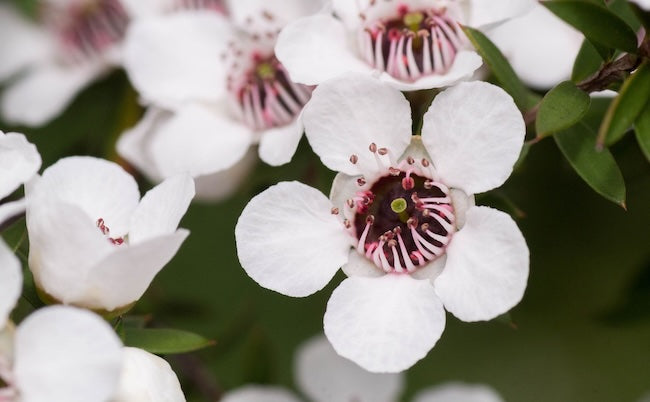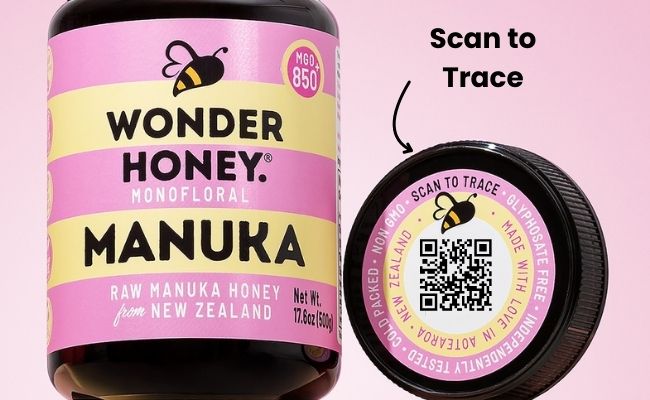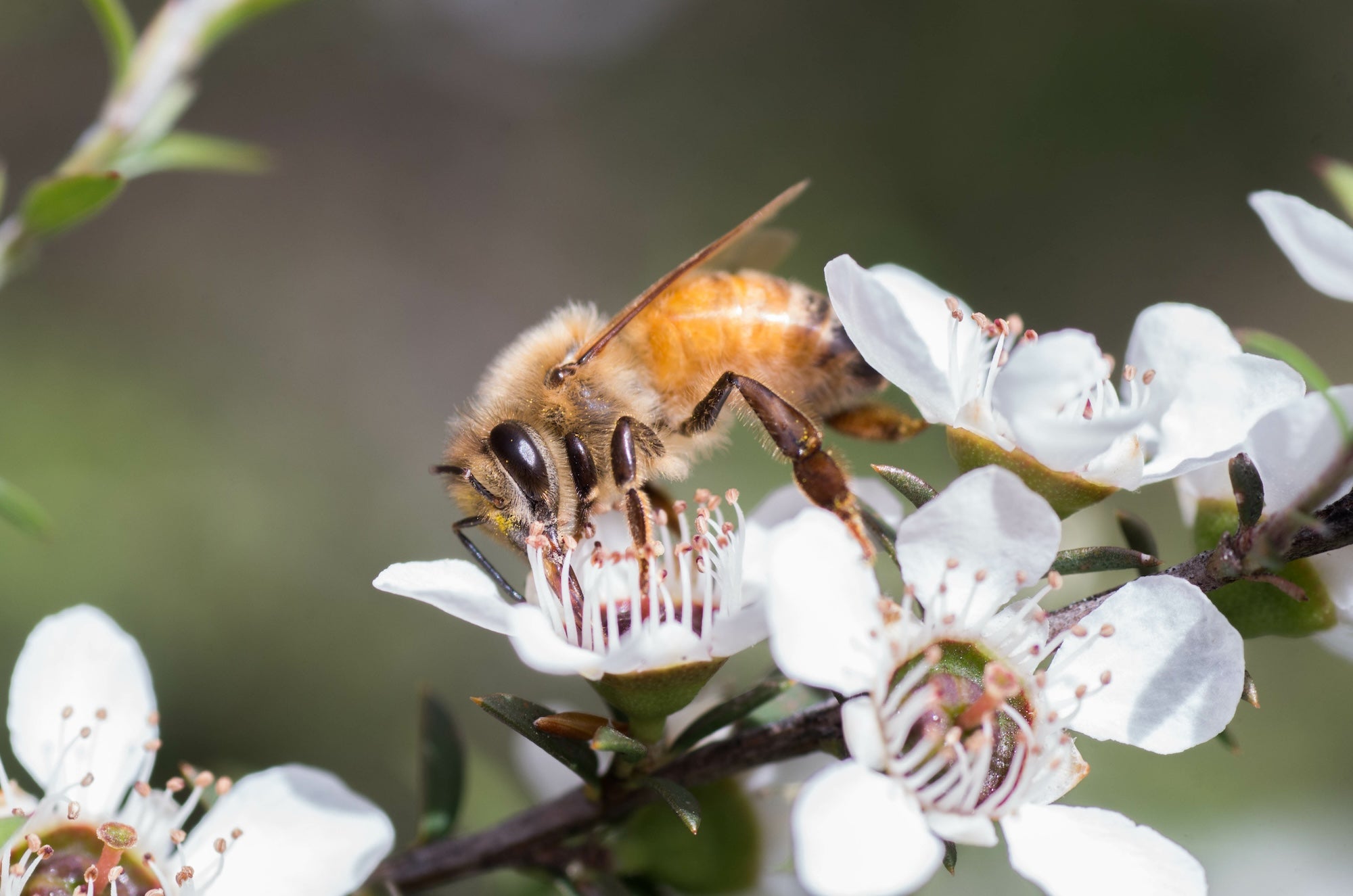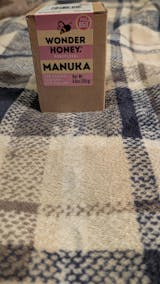
10 Fascinating Facts About Manuka Honey
It's time to investigate into the remarkable world of manuka honey, a unique substance renowned for its exceptional health benefits and healing properties. You may be surprised to learn that this special honey is not only delicious but also packed with antibacterial and antioxidant features that can enhance your well-being. In this post, you'll discover ten captivating facts about manuka honey that highlight its unique qualities and why it deserves a place in your pantry.
Key Takeaways:
- Unique Properties: Manuka honey possesses distinct antibacterial qualities, which set it apart from other types of honey.
- Geographic Origin: This honey is primarily produced in New Zealand, from the nectar of the Manuka tree.
- MGO Rating: MGO is a grading system that measures the potency of Manuka by as it is the MGO level which makes Manuka antibacterial
- Health Benefits: Manuka honey is renowned for its potential to aid in wound healing, soothe sore throats, and provide digestive support.
- Historical Significance: Indigenous Māori people have utilized Manuka honey for its medicinal properties for centuries, highlighting its cultural importance.
What is Manuka Honey?
The Manuka honey you’re hearing about is a unique variety of honey that originates from the nectar of the Manuka tree, native to New Zealand. This honey is renowned for its distinct flavor and remarkable healing properties, which have made it a sought-after superfood.
Origin and Production
Above all, Manuka honey is sourced from the flowers of the Manuka plant, which blooms primarily in New Zealand. Beekeepers collect the honey during the flowering season, carefully monitoring the bees to ensure the highest quality product. This process ensures the honey maintains its unique properties, distinguishing it from standard honeys.
Unique Properties
Among the many benefits of Manuka honey is its powerful antibacterial effect, attributed to its high levels of methylglyoxal (MGO). This compound is known for its effectiveness against harmful bacteria, making Manuka honey a natural remedy for wounds, ulcers, and even inflammation.
And, importantly, the unique properties of Manuka honey extend beyond just its antibacterial capabilities. It has proven to be beneficial for soothing sore throats, boosting the immune system, and promoting digestive health. Additionally, its anti-inflammatory qualities can help alleviate symptoms of conditions like acne and eczema. This means you can not only enjoy its delicious taste but also incorporate it as a natural remedy into your daily routine for enhanced wellness.
Health Benefits of Manuka Honey
While many enjoy the sweet taste of honey, Manuka Honey Facts reveal that this unique variety offers numerous health benefits. It is not only a delicious natural sweetener but also boasts powerful properties that can enhance your overall well-being. From supporting your immune system to soothing sore throats, you're sure to find several reasons to incorporate this honey into your daily routine.
Antibacterial Properties
Behind the distinct flavor and color of Manuka honey lies its potent antibacterial properties. It contains Methylglyoxal (MGO), a compound known for its ability to combat harmful bacteria. This makes Manuka honey an excellent option for promoting digestive health and preventing infections, ensuring that you can enjoy both great taste and added protection.
Wound Healing Effects
Around the world, Manuka honey is celebrated for its remarkable wound healing effects. This natural remedy not only provides moisture to wounds, but it also creates a protective barrier that helps to prevent infection and promotes faster recovery.
In fact, studies have shown that Manuka honey is particularly effective in treating chronic wounds and burns, as it can reduce inflammation and aid in tissue regeneration. Its ability to provide a sterile environment while nourishing the afflicted area makes it a sought-after choice for those seeking holistic wound care solutions. By incorporating Manuka honey into your health regimen, you can leverage its natural healing powers for vibrant, healthier skin.
Manuka Honey vs. Regular Honey
Unlike regular honey, which can come from various flower sources, manuka honey is specifically produced by bees that pollinate the Manuka tree found predominantly in New Zealand. This unique floral source contributes to its distinctive flavor, color, and the notable health properties that set it apart from conventional honey. Understanding these differences can help you choose the right honey for your needs.
Taste and Uses
One of the most noticeable differences between manuka honey and regular honey is in taste and culinary uses. Manuka honey has a rich, earthy flavor, which makes it a fantastic addition to teas, desserts, or simply enjoyed by the spoonful. Regular honey tends to have a milder sweetness, making it more versatile for everyday use.
In fact, the unique flavor profile of manuka honey offers you a delightful way to enhance your recipes, while its potential health benefits may also encourage you to consider it as more than just a sweetener. By incorporating manuka honey into your diet, you may experience improved digestion and boosted immunity due to its natural antibacterial properties. However, it’s imperative to use these benefits wisely, as not all manuka honey is created equal, and its quality can greatly influence its effectiveness.
How to Identify Authentic Manuka Honey
Once again, identifying authentic manuka honey involves knowing what to look for. Genuine manuka honey is primarily produced in New Zealand and is characterized by its unique properties. You should always check for certifications, ensuring that the product displays verified labels like MGO. The honey should also have a rich, dark color and a thick consistency, setting it apart from regular honey. Always purchase from reputable sources to ensure you are getting a product of high quality.
MGO Ratings
Honey with high MGO ratings indicates its purity and potency. MGO refers to methylglyoxal level, which is a marker of genuine manuka honey's antibacterial qualities. Look for products with MGO ratings above 300 to ensure you’re investing in a beneficial product. The higher the rating, the stronger its health benefits.
Labeling Standards
Around the world, labeling standards for manuka honey need to be consistent to protect consumers. Authentic manuka honey must indicate its MGO rating on the label, confirming its purity. Additionally, products labeled with “active” or “medical-grade” should meet specific benchmarks. Authentic brands are usually transparent about their sourcing and testing methods, offering certificates to back their claims.
Standards for manuka honey labeling are tightly regulated to prevent misleading claims. You should look for strong, clearly defined ratings such as MGO that demonstrate authenticity. Some misleading labels may use terms like "manuka blend" that lack the necessary standards. Be sure to check for certifications from reputable institutions to avoid false claims. Ultimately, authentic manuka honey should provide transparent information, including its origin and testing results for your assurance.
Therapeutic Applications
All of manuka honey's unique properties contribute to its therapeutic applications, making it a popular choice for promoting overall health. Rich in methylglyoxal (MGO), manuka honey boasts powerful antibacterial and anti-inflammatory effects, providing support for various health conditions. As a natural remedy, it can aid in wound healing, soothe sore throats, and encourage digestive health, allowing you to experience the multifaceted benefits it offers.
Digestive Health
Behind its sweetness, manuka honey plays a significant role in supporting your digestive system. The prebiotic properties of this honey help nourish the good bacteria in your gut, promoting a healthy microbiome. With its antibacterial qualities, it can also assist in fighting harmful bacteria, potentially alleviating issues like indigestion or upset stomach.
Skin Care
Below the surface, manuka honey presents remarkable benefits for your skin care routine. Its natural antibacterial and anti-inflammatory properties make it effective for treating acne, eczema, and other skin irritations. The humectant quality of manuka honey aids in moisture retention, helping to keep your skin hydrated and supple.
The benefits of manuka honey for your skin are truly impressive. Rich in antioxidants, it not only helps fight free radicals but also promotes healing and reduces inflammation. When applied topically, it can soothe conditions like acne and rosacea while accelerating wound healing due to its antibacterial properties. Incorporating manuka honey into your skincare routine can lead to clearer, more vibrant skin, allowing you to feel confident in your appearance.
Culinary Uses of Manuka Honey
Many food enthusiasts have turned to Manuka Honey for its rich flavor and unique health benefits. This premium honey not only elevates your cooking but also enhances the nutritional value of your meals. From drizzling over cheeses to incorporating it into marinades, manuka honey is a versatile ingredient you’ll enjoy experimenting with.
Recipes and Pairings
Honey complements a variety of flavors, making it a great addition to your culinary creations. Use it in dressings, mixed with lemon juice and olive oil to create a deliciously sweet and tangy blend. Pair manuka honey with cheese, yogurt, or fresh fruits for a delightful snack that satisfies your sweet craving while offering health benefits.
Beverages and Dishes
By incorporating manuka honey into your beverages and dishes, you can enhance their flavor and nutritional profile. Whether you stir it into your morning tea, add it to smoothies, or use it as a natural sweetener in desserts, you'll appreciate its versatile and healthy attributes.
Culinary use of manuka honey will transform your everyday dishes into gourmet experiences. You can use it to marinate meats, sweeten sauces, or drizzle over roasted vegetables, unlocking a depth of flavor that is both delicious and beneficial. The unique properties of manuka honey, derived from the nectar of the manuka tree, may also boost your immune system and provide skin health benefits, making it a valuable ingredient to include in your kitchen. Experimenting with manuka honey can truly revitalize your cooking!
To wrap up
The fascinating world of manuka honey offers you unique benefits and intriguing qualities that set it apart from regular honey. Through its exceptional antibacterial properties, rich nutrient profile, and distinct production methods, manuka honey can enhance your wellness routine in remarkable ways. By embracing its diverse applications, you can elevate both your culinary experiences and health practices, making the most out of this extraordinary natural sweetener. Discovering these ten facts deepens your appreciation for manuka honey, allowing you to harness its full potential in your daily life.
FAQ
Q: What is manuka honey?
A: Manuka honey is a unique type of honey that is produced by bees that pollinate the flowers of the manuka bush (Leptospermum scoparium), native to New Zealand and Australia. It is renowned for its distinct flavor, creaminess, and especially its potential health benefits, which are attributed to the presence of unique compound methylglyoxal (MGO). Manuka honey's popularity has surged due to its use in natural remedies and skincare products.
Q: What makes manuka honey different from regular honey?
A: The key differentiator between manuka honey and regular honey lies in its properties and components. Regular honey mainly contains glucose and fructose, while manuka honey contains high levels of MGO, a compound known for its antibacterial properties. Additionally, manuka honey has a MGO rating which indicates its purity and potency, and is often considered more beneficial in medicinal applications than average honey.
Q: How is the potency of manuka honey measured?
A: The potency of manuka honey is measured using the MGO rating system. The higher the MGO rating (typically ranging from 100 to over 1300), the more potent and therapeutically beneficial the honey is considered.
Q: What are some health benefits associated with manuka honey?
A: Manuka honey is celebrated for numerous health benefits. It has antibacterial, anti-inflammatory, and antioxidant properties, making it highly effective for wound healing, soothing sore throats, aiding digestion, and improving oral health. Studies suggest that it may help fight certain infections, promote skin healing, and boost overall immune function.
Q: How should manuka honey be stored to maintain its quality?
A: To preserve the quality and potency of manuka honey, it should be stored in a cool, dark place, away from direct sunlight and heat. It is best kept in an airtight container to prevent moisture absorption. Unlike some food products, manuka honey does not spoil, but optimal storage extends its shelf life and maintains its beneficial properties longer.








Leave a comment
This site is protected by hCaptcha and the hCaptcha Privacy Policy and Terms of Service apply.